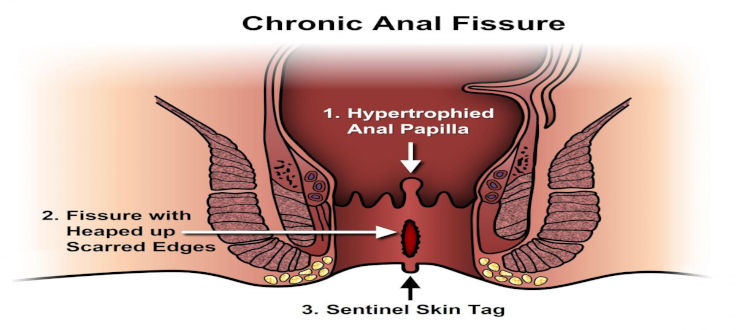Anal-Fissures
An anal fissure is a tear in the mucous membrane that lines the anus and the anal canal. This condition often leads to pain, itching, burning, and bleeding during bowel movements, as well as as to a visible crack in the skin around the anus. Anal fissures are relatively common in young infants, but can occur in patients of all ages. While most anal fissures heal on their own within 4 to 6 weeks, some require surgery.
